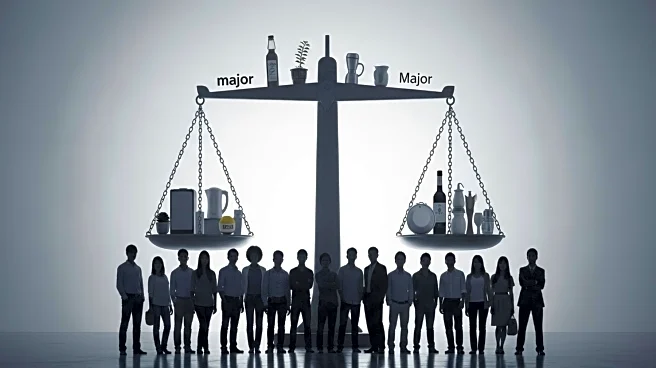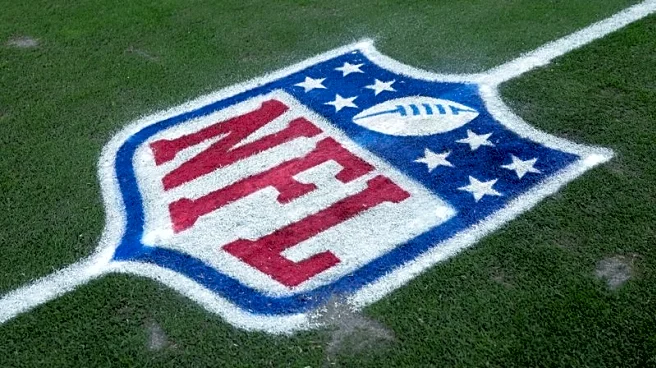What's Happening?
The People's Union USA, a consumer-activist movement, has announced a boycott of six major companies for the month of October. The targeted companies include Amazon, Walmart, Starbucks, Disney, Target, and Ben & Jerry's. This boycott is part of an ongoing campaign by the group to promote corporate accountability and restore diversity, equity, and inclusion (DEI) programs. The People's Union USA has been advocating for these changes since February, aiming to reshape corporate influence over U.S. economic policies. The group has previously targeted Amazon, Walmart, Starbucks, and Target, while Disney and Ben & Jerry's have been added to the list following recent controversies. Disney faced backlash after suspending the ABC late-night talk show Jimmy Kimmel Live!, which was later reinstated. Ben & Jerry's co-founder Jerry Greenfield announced his departure from the company, citing disputes with parent company Unilever over the brand's independence in pursuing social justice causes.
Why It's Important?
The boycott highlights ongoing tensions between consumer advocacy groups and major corporations regarding corporate responsibility and social justice issues. The People's Union USA's actions reflect a broader societal push for companies to engage in ethical practices and support DEI initiatives. The targeted companies, being significant players in the U.S. economy, face potential reputational and financial impacts from such boycotts. For instance, Target has been criticized for discontinuing its DEI program, while Walmart has defended its contributions to communities and tax payments. The boycott underscores the growing influence of consumer activism in shaping corporate policies and the potential for such movements to drive change in corporate governance and accountability.
What's Next?
The boycott is set to continue throughout October as part of the 'Economic Blackout Tour,' which has been active since early 2025. The People's Union USA plans additional actions in the coming months, aiming to maintain pressure on these corporations. The companies involved may respond with public statements or policy adjustments to address the concerns raised by the boycott. Observers will be watching to see if the boycott leads to any tangible changes in corporate practices or influences broader industry standards regarding corporate accountability and social justice.










